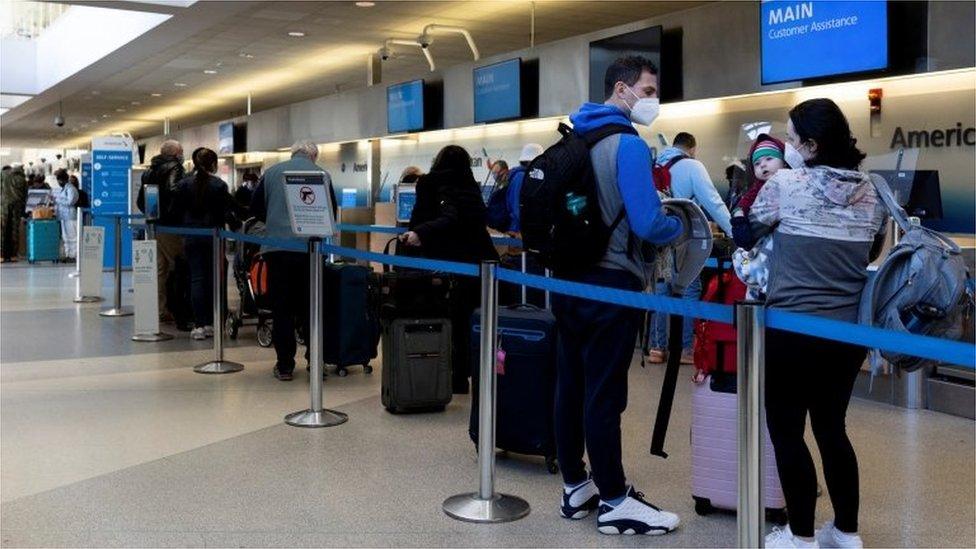Omicron: US to lift travel restrictions from southern Africa
- Published

The US is to lift travel restrictions it imposed on eight southern African nations over a new coronavirus strain.
The White House said the 29 November measure, affecting South Africa, Botswana, Zimbabwe, Mozambique, Namibia, Lesotho, Eswatini and Malawi, would be lifted by New Year's Eve.
The official said the curbs were no longer necessary amid a US explosion of cases of the Omicron variant.
The variant now makes up most of all new US cases.
"The restrictions gave us time to understand Omicron and we know our existing vaccines work against Omicron, esp boosted," tweeted White House assistant press secretary Kevin Munoz.
The restrictions were first imposed by the EU and UK. The US and a host of other countries followed suit.
The move was roundly criticised, with United Nations Secretary General Antonio Guterres calling it "travel apartheid".
Justifying the move, the White House's chief coronavirus adviser, Dr Anthony Fauci, said earlier this month it was "done at a time when we were really in the dark" about Omicron.
"We all feel very badly about the hardship that might have been put upon not only South Africa, but the other African countries," he said.
Last week, Canada lifted its own ban on foreign travellers from 10 African countries. An official said the country's spike in domestic Omicron cases meant the requirements were "no longer needed".
Canadian media had previously reported that the ban forced some citizens to travel through Ethiopia on their way home in spite of an active travel advisory against visiting that Horn of Africa nation due to the civil war.
In recent weeks the US has further tightened its testing requirements. All international travellers must provide proof of a negative test result within one day of their flight, regardless of vaccination status.
President Joe Biden - who has called Omicron "a cause for concern, not a cause for panic" - has so far resisted backing the lockdown measures seen in some European Union countries.
The ban did not prevent Americans from returning to the country from the region and only applied to non-US citizens.
Doctors in South Africa - where Omicron was first reported - said early on that infections from the new variant were resulting in only mild illness. This finding has since been backed up by studies in the UK.
The strain has spread faster than any previous variant in the US but has not yet resulted in a significant spike in hospitalisations.
Only one US death so far has been linked to Omicron: a Texas man in his 50s who was unvaccinated and had underlying health conditions.